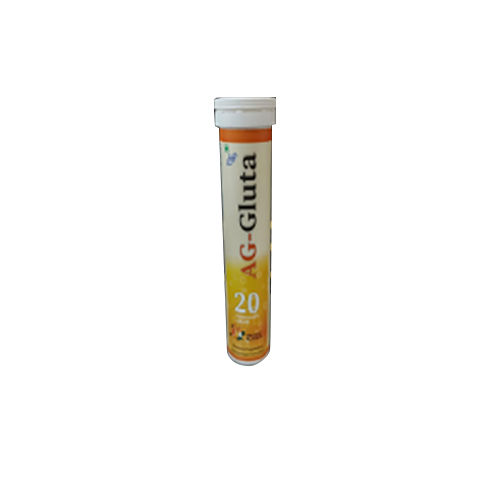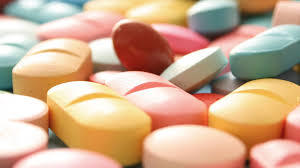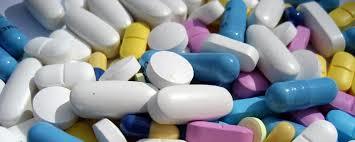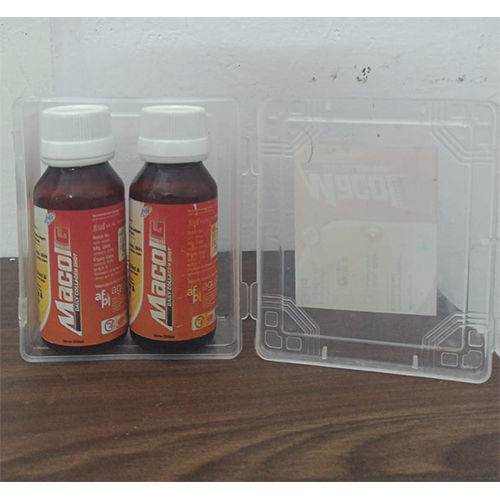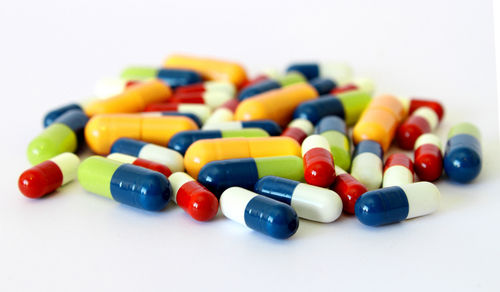
5-G Formula Capsule
71 INR/Box
Product Details:
- Purity 98%
- Formulations Type General Drugs
- Formulations Form Tablets
- Gender/Age Group Adult Women Children
- Storage Instructions Store in Cool
- Click to view more
X
5-G Formula Capsule Price And Quantity
- 300 Box
- 71 INR/Box
5-G Formula Capsule Product Specifications
- Store in Cool
- 98%
- Tablets
- General Drugs
- Adult Women Children
5-G Formula Capsule Trade Information
- Cash Advance (CA) Cash in Advance (CID)
- 300 Box Per Month
- 1 Months
- Yes
- Sample costs shipping and taxes has to be paid by the buyer
- Western Europe Australia Middle East Central America South America Asia Eastern Europe North America Africa
- All India
Product Description
This is a synergistic combination of Natural Extracts, vitamins with trace minerals to support the structure and function of ligaments and improve immunity. The functions of each nutrient are well known, and each of them plays one or more key roles in maintaining the daily functions basic to health and life itself.This combination provides antioxidants with all required amino acids and vitamins with minerals in specially formulated quantities, to bring the best supplement to fulfill the overall nutritional supplementation and provide health benefits. Dietary supplements are used by the majority of consumers in India because the today's hectic life style and untimely food habits, so they are not able to take a balanced diet with recommended servings of fruits and vegetables i.e. do not get proper nutrition as a result they may become deficient of vitamins, minerals and other nutrients which may lead to deficiency and life style problems. So people take supplements for all kind of reasons, usually relating to their health.
The rational use of nutritional supplements, combined with a healthy diet, will contribute substantially to health promotion and work in balance and synergism on protection and integration of the physiological functions of the body.
Grape Seed Extract: Antioxidant and beneficial for cardiovascular conditions
Ginseng Extract: Restores and enhances normal wellbeing
Ginkgo Biloba Extract : Antioxidant and memory enhancement
Citrus bioflavonoids : Antioxidant and supports immune system
Green tea extract : Green tea is used for its antioxidant properties
Garlic powder : Used for many conditions related to the heart and blood system
Lycopene : Antioxidant and useful in cancer prevention and cardiovascular disease
Methionine : Useful in depression, arthritis pain as well as chronic liver disease
Glutamic acid : Strengthens the immune system
L-Lysine: Necessary for normal growth and development
L-Cysteine : Supports the synthesis of the highly antioxidative glutathione and boosts the immune system
L-Carnitine L-Tartrate: Useful in energy production
Multivitamin and multimineral replenish the deficient stores in human body, support immune function, and aid metabolism of body. These are also useful in getting rid of the toxins, as well as the lifestyle-these all subject one to harmful toxins which can lead to serious health problems.
With the use of this health supplement: Natural Extract with Antioxidant, Amino acid, Multivitamin & Multi Trace Mineral capsule can partly fulfill the requirements for Vitamins, minerals, natural extract and amino acid and thus can keep, themselves healthy.
This combination also helps slow down the aging process, which can have immense effects on your skin health.
Indications:
This formula has been formulated to provide:
- Antioxidant activity
- Improves peripheral blood circulation
- Helps keep blood sugar and cholesterol levels
- For motion sickness, to increase appetite, and to reduce stomach acidity
- Boosts your energy levels and helps you combat the weakness caused due to weight loss
- Works as anti-depressant and stress buster that further helps you achieve your goal faster
- Helps fight ageing
- Promotes normal growth and development by increasing collagen formation
- Supports the production of other proteins like enzymes, antibodies and hormones
- Promotes bone health by increasing calcium absorption; for osteoporosis or weak bones by reducing bone loss
- Helps convert fatty acids to energy, aiding in weight reduction
- Promotes skin health through increased collagen formation
- Minimize digestive complaints
- Effective in macular degeneration
Natural Extracts:
Grape Seed Extract:
Grape seed extract is an industrial derivative of grape seeds, extremely rich in antioxidants and oligomeric proanthocyanidin complexes (OPCs). The extract has been linked to a wide range of possible therapeutic properties including healing wounds and treating conditions such as high cholesterol, atherosclerosis, macular degeneration, poor circulation and nerve damage.
Grape seed extract can help support cardiac health by maintaining youthful endothelial function, regulating platelet aggregation, and reducing inflammation. It is a powerful protector of heart and general circulation. It favorably changes a number of metabolic signals toward reduced risk for cardiovascular disease. It is proven to act as a water-soluble antioxidant and helps lower key inflammatory signals such as CRP, IL6, and TNFa. It is also proven to act at the gene transcription level, helping clear cholesterol, reduce triglycerides, and directly helping the key inflammatory gene signal known as NF-kappaB. As far as GSE is concerned, the higher the dose the greater the protection.
Ginseng Extract Powder :
Ginseng is any of eleven different species of short, slow growing perennial plants with fleshy roots. Ginseng is used for low iron in the blood (anemia), diabetes, trouble sleeping (insomnia), nerve pain, fever, and blood and bleeding disorders, painful joints. Ginseng can be used to improve the health of people recovering from illness. It increases a sense of wellbeing and stamina, and improves both mental and physical performance. Ginseng can be used to help with hepatitis C, and symptoms relating to menopause, and can also be used for lowering blood glucose levels and controlling blood pressure. Ginseng has been shown to reduce the levels of stress in both men and women. Those that take ginseng regularly are able to withstand higher amounts of physical and emotional stress.
Ginkgo Biloba :
Ginkgo biloba is a powerful antioxidant and is well known for its powerful action to enhance circulation, even to the smallest of body parts, and apart from helping with the blood flow, it is thought to also make the blood less sticky. It is also sometimes referred to as GBE (Ginkgo Biloba Extract). Because of its powerful effect on brain, mood and mental functions, it is also referred to as the "smart herb" and is great for reducing high blood pressure, inhibiting blood clots and as an anti-aging supplement. This ancient herb acts to enhance oxygen utilization and thus improves memory, concentration, and other mental faculties.
Citrus Bioflavonoids:
Bioflavonoids are a group of plant pigments that are responsible for the colors of many flowers and fruits. Citrus bioflavonoids are those bioflavonoids, or flavonoids, found in citrus fruits such as lemon, orange, tangerine, grapefruit, etc. Bioflavonoids are also plant compounds that demonstrate vitamin like properties and exhibit superior antioxidant activity like
- Strengthens capillaries and regulates their permeability
- Reduces inflammation
- Enhances immune system
- Essential for proper absorption and use of vitamin C
- Works as antioxidant by keeping vitamin C from being oxidized
Green Tea Extract:
Green tea, these humble leaves, have once again become the darling of nutritionally aware people, since they have great antioxidant properties, combat mental fatigue and are also used with great effect by people who suffer from various forms of cancer. Green tea is used for its antioxidant properties, to help fight mental and physical fatigue, its general health enhancing properties, in the fight against cancer, help to prevent blood clotting tendencies, lower blood cholesterol levels and the regulation of blood sugar levels. It is also used in weight loss programs, since it is helpful to those individuals busy with weight loss.
Garlic Powder:
Garlic is an herb. It is best known as a flavoring for food. But over the years, garlic has been used as a medicine to prevent or treat a wide range of diseases and conditions. Garlic is rich in antioxidants, which help destroy free radicals - particles that can damage cell membranes and DNA, and may contribute to the aging process as well as the development of a number of conditions, including heart disease and cancer. Antioxidants neutralize free radicals and may reduce or even help prevent some of the damage they cause over time.
Lycopene:
Lycopene is a member of the carotenoid family of phytochemicals and is the natural pigment responsible for the deep red color of several fruits, most notably tomatoes. The health benefits of lycopene are attributed primarily to its powerful antioxidant actions. Lycopene is a naturally occurring chemical that gives fruits and vegetables a red color. It is one of a number of pigments called carotenoids. Lycopene is found in watermelons, pink grapefruits, apricots, and pink guavas. It is found particularly in high amounts in tomatoes and tomato products. People take lycopene for curing heart disease, "hardening of the arteries" (atherosclerosis); and cancer of the prostate, breast, lung, bladder, ovaries, colon, and pancreas. Some people also use lycopene for cataracts and asthma.
Essential Amino Acids:
Methionine:
Methionine is sulfur containing essential amino acid and was first isolated in 1922 from casein and belongs to a group of compounds called lipotropics - the others in this group include choline, inositol, and betaine. It is important in the process of methylation where methyl is added to compounds as well as being a precursor to the amino acids cystine and cysteine. The amino acid methionine is also a great antioxidant as the sulfur it supplies inactivates free radicals.
Glutamic Acid:
Glutamic acid, a non-essential amino acid and is synthesized from a number of amino acids including ornithine and arginine. It is an important excitatory neurotransmitter, and glutamic acid is also important in the metabolism of sugars and fats. It helps with the transportation of potassium across the blood-brain barrier, although it does not pass this barrier that easily. It also shows promise in the future treatment of neurological conditions, ulcers, hypoglycemic, muscular dystrophy, epilepsy, Parkinson's, and mental retardation and can be used as fuel in the brain.
L-Lysine:
Lysine is an essential amino acid and is a basic building block of all protein and essential for health. This nutrient was first isolated in 1889 from casein. However, it cannot be manufactured naturally in the human body like other types of amino acids. Therefore, L-lysine, also called lysine, is considered as one of the eight essential amino acids.
L-Cysteine:
Cystine is a crystalline, sulfur-containing amino acid, formed from two molecules of the amino acid cysteine. Required for proper vitamin B6 utilization and is also helpful in the healing of burns and wounds, breaking down mucus deposits in illnesses such as bronchitis as well as cystic fibrosis. Cysteine also assists in the supply of insulin to the pancreas, which is needed for the assimilation of sugars and starches. It increases the level of glutathione in the lungs, liver, kidneys and bone marrow, and this may have an anti-aging effect on the body by reducing age-spots etc. It has been shown as it may be effective in preventing hangovers, as well as preventing liver and brain damage.
L-Carnitine L-Tartarate:
Carnitine tartrate is the supplement form of carnitine, a substance that plays a role in energy production. Carnitine is found in almost all of your body's cells and is particularly concentrated in skeletal tissue. It plays a crucial role in helping your body burn, or oxidizes fat for fuel. So that our body can use fat as an energy source, carnitine transports long-chain fatty acids into specialized fuel manufacturing centers called mitochondria. Once inside, the mitochondria can burn the fatty acids to produce energy. In addition, carnitine transports toxic compounds out of the mitochondria to prevent accumulation.
Essential Vitamins:
Niacinamide:
Vitamin B3 is required for cell respiration, helps in the release of energy and metabolism of carbohydrates, fats, and proteins, proper circulation and healthy skin, functioning of the nervous system, and normal secretion of bile and stomach fluids. It is used in the synthesis of sex hormones, treating schizophrenia and other mental illnesses, and a memory-enhancer.
Vitamin C:
Vitamin C is required in the synthesis of collagen in connective tissue, neurotransmitters, steroid hormones, carnitine, and conversion of cholesterol to bile acids and enhances iron bioavailability. Ascorbic acid is a great antioxidant and helps protect the body against pollutants.
Vitamin E :
Vitamin E is an essential fat-soluble vitamin that includes eight naturally occurring compounds in two classes designated as tocopherols and tocotrienols. Vitamin E is a powerful antioxidant, protects your cells from oxidation, and neutralizes unstable free radicals, which can cause damage. This is done by the vitamin E giving up one of its electrons to the electron deficient free radical, making it more stable. While Vitamin E performs its antioxidant functions, it also protects the other antioxidants from being oxidized.
Choline Bitartrate :
Choline is an essential nutrient for brain health, intelligence and synaptic plasticity. It is used in your brain both as a precursor to acetylcholine a neurotransmitter chiefly important for memory and as a component in the maintenance of healthy cell membranes.
Inositol:
Inositol is a naturally occurring nutrient found in various forms, the most common being myo- inositol. Inositol is needed for health at cellular level and a fair concentration is found in the lens of the human eye as well as the heart. Inositol plays an important part in the health of cell membranes especially the specialized cells in the brain, bone marrow, eyes and intestines. The function of the cell membranes is to regulate the contents of the cells, which makes effective functioning possible.
Calcium Pantothenate
Vitamin B5 is commercially available as D-pantothenic acid, as well as dexpanthenol and calcium pantothenate, which are chemicals made in the lab from D-pantothenic acid. Vitamin B5 plays an important role in the secretion of hormones, such as cortisone because of the role it plays in supporting the adrenal gland. These hormones assist the metabolism, help to fight allergies and are beneficial in the maintenance of healthy skin, muscles and nerves.
Vitamin B1
Thiamin, also called vitamin B1, is used in many different body functions and deficiencies may have far reaching effects on the body. Thiamin may enhance circulation, helps with blood formation and the metabolism of carbohydrates. It is also required for the health of the nervous system and is used in the biosynthesis of a number of cell constituents, including the neurotransmitter acetylcholine and gamma-aminobutyric acid (GABA). It is used in the manufacture of hydrochloric acid, and therefore plays a part in digestion.
Vitamin B2
Riboflavin (vitamin B2) is manufactured in the body by the intestinal flora and is easily absorbed, although very small quantities are stored, so there is a constant need for this vitamin.
It is required by the body to use oxygen and the metabolism of amino acids, fatty acids, and carbohydrates. Riboflavin is further needed to activate vitamin B6 (pyridoxine), helps to create niacin and assists the adrenal gland. It may be used for red blood cell formation, antibody production, cell respiration, and growth.
Vitamin A
Vitamin A and carotene can be obtained from either animal or vegetable sources. The animal form is divided between retinol and dehydroretinol whereas the vegetable carotene can be split into four very potent groups - alpha-carotene, beta-carotene, gamma-carotene and crypto-carotene. With enough beta-carotene available in the body, the body can manufacture its own vitamin A.
Vitamin A is required for night vision, and for a healthy skin. It assists the immune system, and because of its antioxidant properties is great to protect against pollution and cancer formation and other diseases. It also assists your sense of taste as well as helping the digestive and urinary tract and many believe that it helps slow aging. It is required for development and maintenance of the epithelial cells, in the mucus membranes, and your skin, and is important in the formation of bone and teeth, storage of fat and the synthesis of protein and glycogen.
Vitamin B6
Vitamin B6, also known as pyridoxine is a part of the B group vitamins and is water-soluble and is required for both mental and physical health. Pyridoxine is required for the balancing of hormonal changes in women as well as assisting the immune system and, in the growth of new cells. It is also used in the processing and metabolism of proteins, fats and carbohydrates, while assisting with controlling your mood as well as your behavior. Pyridoxine might also be of benefit for children with learning difficulties, also it aids in the prevention of dandruff, eczema and psoriasis.
Vitamin K3
Vitamin K (phylloquinone) can be produced in the intestines and this function is improved with the presence of cultured milk, like yogurt, in the diet, Vitamin K is classified as a fat-soluble vitamin. Vitamin K is found in nature in two forms - K1, also called phylloquinone, and is found in plants and vitamin K2, also called menaquinone, which can be synthesized by many bacteria. Vitamin K3, menadione, is a synthetic form of this vitamin which is manmade. Vitamin K is used in the body to control blood clotting and is essential for synthesizing the liver protein that controls the clotting. It is involved in creating the important prothrombin, which is the precursor to thrombin - a very important factor in blood clotting. It is also involved in bone formation and repair. In the intestines it also assists in converting glucose to glycogen, this can then be stored in the liver. There are some indications that Vitamin K may decrease the incidence or severity of osteoporosis and slow bone loss.
Folic Acid
Folic acid, also known as Vitamin B9, is also referred to as folacin or folate and its chemical name is pteroylglutamic acid. This vitamin can be manufactured by the body and be stored in the liver.
It is important for healthy cell division and replication, since its involvement as coenzyme for RNA and DNA synthesis. It is also required for protein metabolism and in treating folic acid anemia. Folic acid also assists in digestion, and the nervous system, and works at improving mental as well as emotional health. This nutrient may be effective in treating depression and anxiety.
Biotin
Biotin, as referred to as Vitamin H is part of the Vitamin B complex group and might be interesting to some people since one of the most visible symptoms of shortage of this vitamin is thinning of hair which can lead to total hair loss. Vitamin H is used in cell growth, the production of fatty acids, metabolism of fats, and proteins. It plays a role in the Kreb's cycle, which is the process in which energy is released from food.
Vitamin D3:
Vitamin D3 is also referred to as Chlolecalciferol and can rightly be called the sunshine vitamin, Vitamin D helps with increasing the absorption of calcium, assists in bone growth and the integrity of bone and promotes strong teeth. It also helps regulate the amount of phosphorus in the body as well as assisting in a healthy heart and nervous system. In some recent studies it has also shown great promise in assisting psoriasis, the immune system, thyroid function as well as normal blood clotting.
Vitamin B12 :
Vitamin B12 is commonly known as Cyanocobalamin. Vitamin B12 is the "generic descriptor" name for any of such vitamers of vitamin B12. Because the body can convert cyanocobalamin to any one of the active vitamin B12 compounds, by definition this makes cyanocobalamin itself a form (or vitamer) of B12.
Minerals:
Iron:
Iron is essential element carrying oxygen, forming part of the oxygen-carrying proteins - hemoglobin in red blood cells and myoglobin in muscles. It is also a component of various enzymes and is concentrated in bone marrow, liver, and spleen. The production of hemoglobin and myoglobin (the form of hemoglobin found in muscle tissue) requires this nutrient.
Zinc:
Zinc is an essential trace mineral found throughout the body, often in conjunction with protein. Zinc is transported in the blood via the protein albumin, so low albumin levels often mean poor absorption of zinc as well. Zinc is a cofactor used to activate dozens of enzymes in every organ in the body. Bones, the prostate gland in men, and the eyes have the highest concentrations of zinc, but about 60% of total zinc in the body is found in muscles. Among many roles, zinc supports immune system and able to help body in healing wounds.
Potassium:
Potassium is one of the electrolytes we all require to maintain health. It is needed for growth, building muscles, transmission of nerve impulses, heart activity etc. Potassium, together with sodium - potassium inside the cell and sodium in the fluid surrounding the cell, work together for the nervous system to transmit messages as well as regulating the contraction of muscles.
Chloride:
Chloride is formed when chlorine gas dissolves in water but is also a dietary mineral needed by the body for optimum health. Chloride in the diet works with potassium and sodium, the two electrolytes, to control the flow of fluid in blood vessels and tissues, as well as regulating acidity in the body, and also forms part of hydrochloric acid in the stomach.
Calcium:
Calcium is needed for so many different functions in the body, from bones, to blood clotting, your muscles etc. It is an essential mineral that provides strength to bones and teeth, but it has several other health benefits. Calcium is essential to nerve conduction, hormone status and muscle contraction. Some research has shown that diets rich in calcium, fruits and vegetables can reduce the risk of high blood pressure.
Calcium helps the body form bones and teeth and is required for blood clotting, transmitting signals in nerve cells, and muscle contraction. Calcium helps prevent osteoporosis; of the two to three pounds of calcium contained in the human body, 99% is located in the bones and teeth.
Calcium also seems to play a role in lowering blood pressure, and has been shown to reduce the risk of cardiovascular disease in postmenopausal women.
Manganese:
Manganese is one of those humble trace minerals so often overlooked, yet essential to your health. It enables the body to utilize vitamin C, B1, biotin as well as choline. It is used in the manufacture of fat, sex hormones and breast milk in females. It is thought to also help neutralize free radicals as well as being of assistance in preventing diabetes and needed for normal nerve function.
Phosphorus:
Phosphorus is present in the body and can be found mainly in the bones and muscles - at a total body content of around 400 - 500 grams. It is very involved with bone and teeth formation as well as most metabolic actions in the body, including kidney functioning, cell growth and the contraction of the heart muscles.The role of phosphate-containing molecules in aerobic exercise reactions has suggested that phosphate loading might enhance athletic performance, though controlled research has produced inconsistent results.
Silicon:
Silicon is a mineral and abundantly found in the universe and more commonly as silica or silicon dioxide. Silicon plays a key role in boosting the collagen formation in the bones. It also adds shine and luster to hair and keeps the skin supple and well hydrated. It is also required by the nails, hair and skin to stay in good condition and is useful in counteracting the effects of aluminum. Silicon levels drop as we age, and it might therefore be beneficial as an anti- aging component in our diets.
Copper:
Copper is a mineral and also needed in relatively small amounts. If large amounts of copper are present, then zinc and vitamin C is reduced in the body. Copper is required in the formation of hemoglobin, red blood cells as well as bones, while it helps with the formation of elastin as well as collagen - making it necessary for wound healing.
Boron:
Boron element is widely present in soil and water, and may be an essential mineral for animals and humans. Boron has the potential to influence a number of metabolic processes.
Boron is essential for healthy bone development, helps the body to metabolize key vitamins and minerals, and also affects estrogen and testosterone levels. Boron is an important trace mineral required for the proper absorption and utilization of calcium for healthy bones. Boron has recently been in the headlines due to studies indicating that it may help women prevent postmenopausal osteoporosis, or loss of bone mass.
Nickel:
Nickel is considered a trace mineral, or micro-mineral. It is found in small amounts in the human body and is believed to play a part in our overall health and bodily processes. It is found in several foods including nuts, dried beans and peas, soybeans, grains, and chocolate. The body needs nickel, but in very small amounts.
Iodine:
Iodine is used in the production of hormones (such as thyroxine, thyroxin) by the thyroid gland, which in turn regulates the conversion of fat to energy, stabilizing our body weight as well as controlling our cholesterol levels. These hormones produced from the iodine are also needed to help form our bones, as well as keeping our skin, nails, hair and teeth in prime condition.
Selenium:
Selenium is a trace mineral that is essential to good health but required only in small amounts. Selenium is incorporated into proteins to make selenoproteins, which are important antioxidant enzymes. The antioxidant properties of selenoproteins help prevent cellular damage from free radicals. Free radicals are natural by-products of oxygen metabolism that may contribute to the development of chronic diseases such as cancer and heart disease. Other selenoproteins help regulate thyroid function and play a role in the immune system.
Vanadium:
Vanadium is a trace mineral that is needed by the human body in small amounts. It is commonly found in vegetables and seafood. The presence of vanadium in the brain inhibits cholesterol from forming in the blood vessels. Vanadium is active in many chemical reactions that take place in the body.
Tin:
Tin is considered a trace mineral, or micro-mineral. It is found in small amounts in our body and is believed to play a part in our overall health and bodily processes. Tin is found in human tissues and in the greatest amounts in the supra-renal glands, liver, brain, spleen, and thyroid gland. Tin is an essential element which gives the body protection. Its properties also have shown positive benefits for depression, fatigue, pain, skin problems, and digestion.
These supplements include products that aim to supplement the diet and provide additional nutrients that may be missing from it or are not being consumed in sufficient quantities. So, this combination increase overall level of health, and may even slow down the process of growing old.
Side Effects:
The product is possible safe for most adults. There is no disadvantage associated with the product if taken under the recommended usage.
However, some are: dizziness, headache, nausea, vomiting, constipation, and diarrhea.
Special Precautions & Warnings: (For Pregnancy and Breast – Feeding mothers):
Pregnant and lactating mothers should not take any single supplement in higher than normal doses unless recommended by a health care provider for special conditions. The combination should only be used in pregnancy and lactation if benefits outweigh the risk.
Storage:
Store in a cool, dry & dark place. Protected from direct sunlight.
Tell us about your requirement

Price:
Quantity
Select Unit
- 50
- 100
- 200
- 250
- 500
- 1000+
Additional detail
Mobile number
Email


